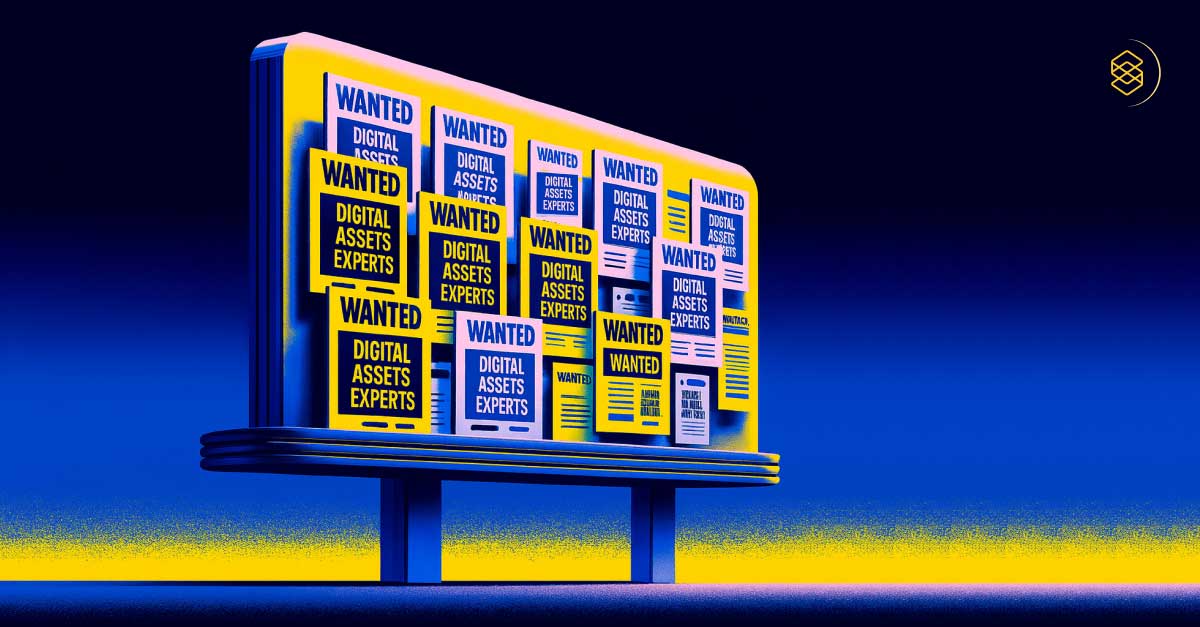At DACOM Singapore 2024, the panel "DeRisking DeFi and Crypto for Institutions: Opportunities and Challenges for Staking, Real-world Assets, and Beyond" brought together a diverse group of experts to delve into the integration of cryptocurrency with traditional finance. They explored the evolving landscape, emphasizing the pivotal role of compliance and how decentralized finance (DeFi) could reshape financial services , featuring insights from:
- Ramesh Krishnamoorthy, Executive Director - Group FinCrime Sanctions Advisory at DBS
- Sugandhi Govil, Director of Compliance at Circle Singapore
- Antonio Alvarez, Chief Compliance Officer at Crypto.com
- Alice Chen, Co-Founder and General Counsel at InvestaX
- Moderated by James Airo, Product Manager at Solidus Labs
Integrating Crypto with Traditional Finance
Ramesh Krishnamoorthy, representing DBS, shared insights from his nine-year tenure with the bank and his instrumental role in launching DBS's crypto business in 2019. Reflecting on his journey, which spans various roles in payments, risk, and fraud management across multiple banks, Krishnamoorthy detailed DBS's proactive engagement in the crypto ecosystem through trading, secure custody, and banking services for professional investors. His discussions underscored the bank's dedication to best serving its clients and their interest in digital assets by fostering responsible blockchain innovations, such as cross-border payments and exploring DeFi applications, emphasizing the significance of clear regulations and enforceability in establishing a viable DeFi ecosystem that prioritizes customer needs over the technology itself.
Krishnamoorthy highlighted the growing interest from institutions in the crypto space, noting DBS's contributions through its digital exchange and custody solutions aimed at professional investors. He advocated for a nuanced understanding of risks in both traditional finance and DeFi, suggesting that while the nature of risks may be consistent across domains, their manifestations and the strategies for mitigation can vary significantly with emerging technologies. Looking forward, Krishnamoorthy expressed optimism for the crypto sector's future, particularly emphasizing the importance of interoperability among blockchain protocols for wider adoption. He posited compliance professionals as key enablers in this evolving landscape, capable of bridging traditional finance and DeFi to ensure secure and trusted platforms for all participants.
Mainstreaming Crypto
Sugandhi Govil, representing Circle at the panel, shared insights into her transition from traditional finance to the forefront of cryptocurrency, particularly highlighting her role in issuing the USDC stablecoin. Her tenure in crypto, beginning just before the tumultuous events of 2022, provided her with valuable experience in crypto compliance. Govil expressed excitement about Circle's mission to bridge traditional finance (TradFi) with the crypto world, aiming to mainstream crypto assets and utilize USDC for facilitating global transactions at internet speed, underscoring the potential of DeFi to empower individuals financially through technology. She emphasized the growing institutional interest in stablecoins, evidenced by Circle's partnerships with major companies and the significant transactional value processed, indicating a broader acceptance of digital assets in traditional finance sectors.
Govil highlighted the pivotal role of compliance in building institutional trust and fostering technology adoption, portraying compliance as a dynamic field that must evolve alongside technological innovations to ensure safe and ethical participation in the crypto space. She advocated for a balanced approach where compliance supports, rather than impedes, business growth and innovation, ensuring the ecosystem remains secure while facilitating mainstream adoption. Conclusively, Govil shared her aspiration for blockchain technology to become more accessible, enabling seamless global transactions with USDC, thereby promoting financial interoperability and efficiency without the burden of exchange rates, signifying her optimistic outlook for the future integration of digital assets into everyday life.
Evolving Crypto Compliance
Antonio Alvarez, the Chief Compliance Officer at Crypto.com, detailed his journey from traditional finance with companies like Visa and American Express to the dynamic world of cryptocurrency. He emphasized Crypto.com's mission to democratize cryptocurrency access, offering a suite of services from wallets to NFT platforms aimed at both retail and institutional clients. Alvarez discussed the evolving DeFi landscape, highlighting the possibility of integrating traditional financial principles like smart contracts for enhanced security and efficiency. He also touched on how Crypto.com supports crypto-native companies and merchants in leveraging cryptocurrency for competitive advantages, particularly in simplifying cross-border transactions and avoiding cumbersome currency conversions.
Alvarez noted the growing institutional interest in cryptocurrency, not just for the investment potential but also for operational efficiencies. This interest is evidenced by major financial institutions like Blackrock and Fidelity exploring crypto, signaling a broader acceptance and understanding of its benefits. He stressed the importance of ethical considerations in DeFi development, especially in creating smart contracts that enforce standards and controls to protect participants. Alvarez's insights point to a future where crypto and traditional finance increasingly converge, driven by innovation, ethical practices, and the overarching goal of creating a more accessible and efficient financial ecosystem.
Tokenization and Compliance in the Blockchain Era
Alice Chen, co-founder and general counsel of Investax, delved into her transition from a Web 2-based crowdfunding platform to a fully blockchain-based platform since her venture into the Web3 domain in 2017. She recounted how the ICO boom inspired Investax to leverage blockchain technology for compliant services in tokenizing real-world assets, now offering a SaaS solution integrated with their licenses for regulated distribution and trading. Chen described Investax as an early pioneer in RWA tokenization, highlighting several world-first projects including tokenizing Singapore's variable capital company structure and creating an automated market maker for security tokens with added protections. Her narrative underscored the drive towards disintermediation in DeFi, aiming to remove intermediaries and grant more control to end-users through automated, blockchain-based processes.
Chen further discussed the evolution of tokenization, particularly during the crypto bear market, noting a trend towards tokenizing traditional assets like treasuries to facilitate conversions and maintain value within the blockchain ecosystem. This trend was amplified by institutions like Franklin Templeton tokenizing treasuries, evidencing the growing acceptance and application of RWA tokenization. Chen emphasized the critical role of compliance in the digital asset space, particularly in light of the FTX collapse, which she pointed out had highlighted the necessity for safeguards like KYC and AML checks in crypto platforms. She envisioned a future where compliance professionals would need to be adept in coding and smart contract audits to ensure the integrity and safety of digital asset transactions, reflecting on the increasing complexity and requirements for compliance in the fragmented and rapidly innovating DeFi ecosystem.
Conclusion
One notable aspect that emerged from the discussion was the concept of staking and its significance in the DeFi ecosystem. Staking represents a pivotal mechanism within DeFi, offering a way for participants to earn rewards by locking up assets, thereby contributing to the network's security and operations. This practice exemplifies the innovative approaches to earning within the crypto space, diverging from traditional financial mechanisms and highlighting the potential for DeFi to revolutionize financial services.
As the digital finance landscape continues to evolve, the discussions from DACOM Singapore 2024 serve as a valuable compass for navigating the future of cryptocurrency and blockchain technology. The panelists' experiences and visions highlight a path towards a more integrated, efficient, and compliant financial ecosystem, where traditional finance and DeFi converge to unlock new possibilities for global transactions, asset tokenization, and financial inclusion. For the full replay of this panel discussion, and to explore content from other DACOM Singapore 2024 panels, be sure to visit here.



.jpg)



